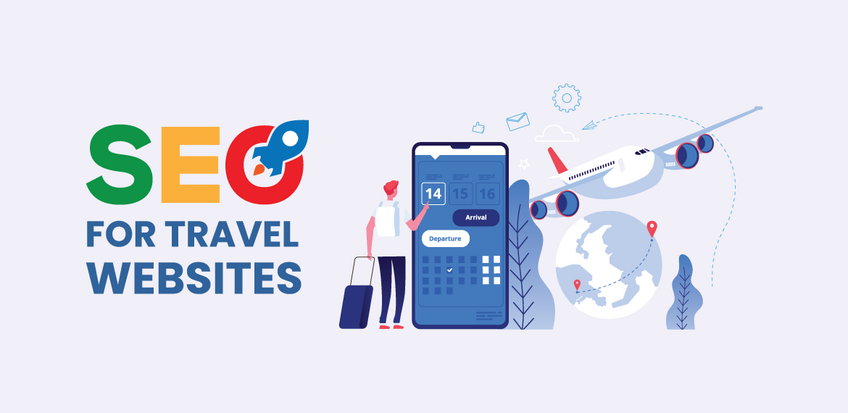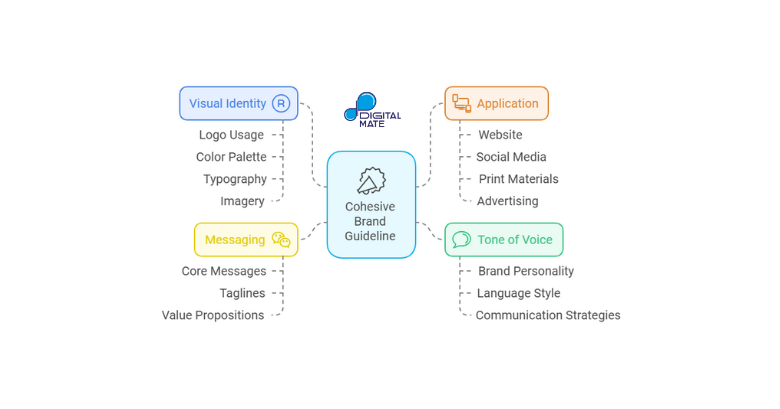SEO For Travel Sector: Best Practices and Strategies for 2025

SEO For Travel Sector: Best Practices and Strategies for 2025
The travel industry is one of the most competitive and dynamic sectors in the digital space. As algorithms evolve, user expectations grow, and digital trends shift, travel businesses must adopt agile and robust Search Engine Optimization (SEO) strategies. This guide outlines best practices to help travel websites rank higher, attract meaningful traffic, and drive conversions.
Why SEO Matters for the Travel Industry
SEO for travel websites is critical because it determines whether your business reaches potential customers during the discovery and decision-making phases. With intense competition and the high stakes of user trust, an effective SEO strategy builds visibility, authority, and revenue.
Core SEO Challenges in the Travel Industry

Seasonality
Seasonal trends dominate the travel industry. SEO strategies must anticipate peak seasons and prepare content, ads, and campaigns well in advance.
High Competition
Keywords like "cheap flights" and "top travel destinations" are highly competitive. A successful travel SEO strategy focuses on long-tail keywords and specific niches to differentiate your content.
User-Generated Content (UGC)
UGC, such as reviews and testimonials, is valuable but hard to control. Travel businesses must optimize and moderate UGC to ensure it positively impacts their SEO rankings.
Keyword Strategy for Travel SEO
Keyword research is the backbone of travel SEO. Here's how to ensure your strategy is effective:
Target Long-Tail Keywords
Focus on specific and descriptive terms like "best family-friendly resorts in Maldives" instead of generic keywords. Long-tail keywords help target niche markets with less competition.
Incorporate Geo-Specific Keywords
Include local modifiers, such as "best restaurants in Rome" or "top-rated hotels near the Eiffel Tower." Geo-specific keywords cater to users searching for location-based solutions.
User Intent-Driven Keywords
Understand user intent to align your content with their journey:
- Informational Intent: "What are the top attractions in Dubai?"
- Navigational Intent: "TripAdvisor reviews for Paris hotels."
- Transactional Intent: "Book luxury resorts in Bali."
Content Optimization for Travel Websites

Destination Guides
Create detailed destination guides covering activities, attractions, accommodation, and travel tips. High-quality guides establish your site as an authority and attract organic traffic.
Travel Blogs
Publishing personal travel stories, insider tips, and curated itineraries fosters engagement. Blogs also help improve dwell time and reduce bounce rates.
Multimedia Content
Add videos, high-resolution images, and infographics to enhance user experience. Optimize all multimedia content with descriptive file names, alt tags, and captions to improve SEO.
On-Page SEO Best Practices
Crafting User-Friendly URLs
Use clean, descriptive URLs with relevant keywords. Avoid cluttered URLs with numbers or random characters.
Example:
- Good: www.yoursite.com/top-hotels-in-Bali
- Bad: www.yoursite.com/xyz123
Optimized Meta Tags
- Title Tags: Include the primary keyword and maintain a natural flow.
- Meta Descriptions: Write compelling descriptions to improve click-through rates (CTR).
Internal Linking
Link to related pages within your site to distribute link authority and encourage deeper exploration. For example, a "Best Beaches in Spain" guide can link to "Top Beachfront Hotels in Marbella."
Technical SEO for Travel Websites
Mobile Optimization
With most travel searches conducted on mobile devices, responsive design is non-negotiable. Ensure your site is mobile-friendly and loads quickly.
Site Speed
Google prioritizes fast-loading websites. To improve page speed, compress images, use a reliable Content Delivery Network (CDN), and minimize JavaScript.
Structured Data Markup
Implement structured data (schema) for reviews, FAQs, and travel itineraries. This enables rich snippets that boost your website's visibility in search results.
HTTPS for Security
Switch to HTTPS to secure sensitive data such as bookings and payment details. Google also ranks secure sites higher.
Local SEO for Travel Businesses
Google Business Profile
- Keep your profile updated with your address, phone number, and operating hours.
- Add photos, respond to reviews, and post updates to engage potential customers.
Consistency in NAP Information
Ensure that your business name, address, and phone number (NAP) are consistent across all online listings to avoid confusion.
Localized Content
Create content that caters to local travelers, such as "Weekend Getaways Near Los Angeles" or "Best Cafes in Melbourne."
Advanced Link Building for Travel SEO
Link building plays a pivotal role in increasing domain authority and ranking.
Collaborate with Travel Influencers
Partner with influencers and bloggers to gain high-authority backlinks. Their content often reaches niche audiences and drives referral traffic.
Guest Posting
Write guest posts for established travel blogs and include backlinks to your website. Ensure the content is valuable and tailored to the host site's audience.
Create Shareable Assets
Unique assets like interactive maps, original travel research, and engaging infographics are more likely to be shared and linked to by other websites.
Emerging Trends in Travel SEO
Voice Search Optimization
As more users rely on voice assistants, optimize for conversational queries like "What's the best budget hotel in New York?" Use natural language in your content and focus on question-based keywords.
AI and Machine Learning
Leverage AI to deliver personalized recommendations based on user behavior. Personalization boosts engagement and leads to higher conversion rates.
Eco-Friendly Travel
Highlight sustainable travel options to attract eco-conscious travelers. Use keywords like "sustainable travel destinations" or "eco-friendly hotels" to target this growing audience.
User-Generated Content as an SEO Asset
UGC, including reviews, photos, and testimonials, is a goldmine for SEO. Optimize UGC by:
- Encouraging customers to leave detailed reviews.
- Schema markup is added to display review ratings in search results.
- Moderating content to ensure relevance and quality.
Social Media Integration for Travel SEO

Although social signals don't directly impact SEO, they are crucial in driving traffic.
- Share blog posts, videos, and guides on Instagram, TikTok, and Pinterest.
- Use hashtags like #TravelSEO, #BestHotels, and #TravelTips to reach a broader audience.
- Add social sharing buttons to your website to encourage users to share your content.
Performance Metrics to Track for Travel SEO
To measure the success of your SEO efforts, monitor these key metrics:
- Organic Traffic: Track the volume of users arriving via organic search.
- Bounce Rate: Aim for engaging content that keeps users on your site longer.
- Conversion Rate: Measure how well your site turns visitors into customers.
- Keyword Rankings: Monitor your rankings for targeted keywords over time.
Conclusion
Mastering SEO for travel websites in 2024 requires a blend of creativity, technical expertise, and data-driven strategies. Your site can stand out in the highly competitive travel SEO industry by focusing on user intent, optimizing for mobile and voice search, and leveraging local SEO and content marketing. Stay agile, embrace emerging trends, and continuously refine your strategy to ensure long-term success.







